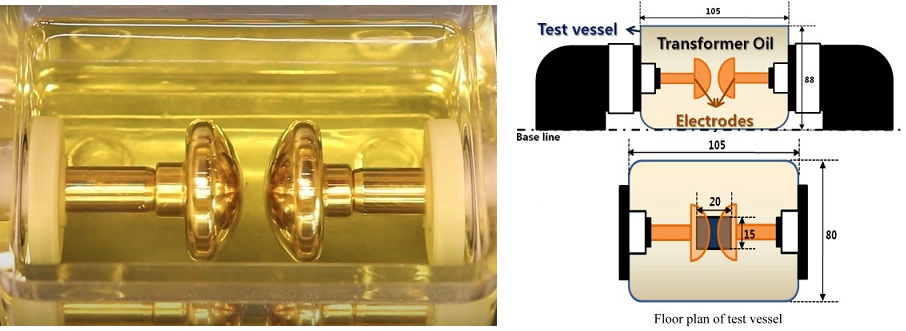Safe Disposal of Waste Transformer Oil to Decrease Ecological Influence
Safe Disposal of Waste Transformer Oil to Decrease Ecological Influence
Blog Article
The Function of Dielectric Transformer Oil in Reliable Power Circulation Systems
Dielectric transformer oil is a necessary element in the realm of power distribution systems, giving critical features that expand beyond plain insulation. Its capacity to protect against electric discharges and assist in warmth dissipation ensures that transformers run successfully and keep their longevity.
Functions of Dielectric Transformer Oil

In addition, dielectric transformer oil plays an important role in thermal administration. It successfully dissipates warmth produced during the operation of transformers, facilitating optimum performance and expanding tools life - transformer oil recovery. The oil circulates within the transformer, taking in warmth and transferring it to cooling down systems or radiators, thus maintaining a stable operational temperature level
Moreover, dielectric transformer oil contributes to the avoidance of oxidation and rust of inner elements. By giving an obstacle versus wetness and air, it preserves the electrical and mechanical homes of the materials utilized in transformers, decreasing the probability of premature failure.
Significance of Insulation
The stability of electric systems heavily depends on effective insulation, which works as the first line of protection versus electrical discharges and short circuits. Insulation products, such as those used in transformers and cables, are crucial for preserving the operational integrity of power distribution systems. They prevent unintended current circulation, protecting both devices and employees from hazardous electrical failures.
The importance of insulation expands past plain defense; it additionally makes sure the durability of electric parts. High-quality insulation products can stand up to environmental stressors, such as moisture, temperature variations, and mechanical impacts, thereby reducing the chance of insulation malfunction. This durability is crucial in maintaining the efficiency of power circulation infrastructure.

Warm Dissipation Device
When taking into consideration the effectiveness of power distribution systems, understanding the warmth dissipation mechanism is important, as excessive warmth can result in tools failure and minimized operational life-span. Dielectric transformer oil plays a vital role in this procedure by promoting reliable warm transfer away from critical parts within the transformer.
The main system of warm dissipation in transformers involves conduction, radiation, and convection. The oil circulates within the transformer, either naturally or through forced circulation, boosting convective view publisher site warmth transfer.
Furthermore, the dielectric homes of the oil avoid electric malfunction while sustaining air conditioning. The high thermal conductivity of transformer oil allows quick warm exchange, guaranteeing that temperature increases are reduced (dielectric transformer oil). By maintaining optimal operating temperatures, dielectric oil not just boosts the dependability of power circulation systems but additionally adds to the general performance of power transmission. Comprehending these systems is crucial for the optimum layout and procedure of transformers within the power distribution network.
Influence On Transformer Longevity
Effective warmth dissipation straight influences transformer longevity, as prolonged exposure to raised temperature levels can speed up insulation deterioration and product tiredness. Dielectric transformer oil plays a critical role in this procedure by efficiently transferring heat away from the core and windings, preserving ideal operating temperature levels. The thermal conductivity and details warmth ability of transformer oil are crucial characteristics that boost its ability to dissipate and absorb warmth generated during transformer procedure.
Additionally, the oil's dielectric residential or commercial properties are essential for stopping electrical break down and guaranteeing insulation stability. A high-quality dielectric oil reduces the danger of arcing and dielectric failure, which can lead to devastating transformer failures and significantly reduce life span. Routine surveillance of the oil's problem is vital to determine contaminants and destruction products that might compromise its performance.
On top of that, the chemical security of the dielectric oil is vital; oils that withstand oxidation and thermal degradation add to prolonged insulation life and total transformer dependability. By alleviating the effects of heat and electrical tension, dielectric transformer oil works as a crucial part in improving the longevity and performance of power circulation transformers, hence making sure a much more reputable power supply.

Environmental Considerations
Environmental considerations surrounding dielectric transformer oil are progressively crucial in the context of sustainable power circulation systems. The use of typical mineral oil offers challenges due to its possible ecological risks, including toxicity to marine life, soil contamination, and difficulty in biodegradation.
Moreover, the disposal and my site recycling of dielectric oil are important elements of environmental stewardship. Correct monitoring methods must be applied to stop leaks and spills, which can have terrible effects on regional ecosystems. Governing frameworks are evolving to enforce rigorous guidelines regarding the handling, storage, and disposal of transformer oils, ensuring that utilities focus on environmental honesty.
Additionally, the life process assessment of dielectric transformer oils is ending up being a crucial aspect of assessing their total ecological influence. This assessment includes oil production, use, and end-of-life disposal. By deciding and adopting lasting techniques for environment-friendly choices, power circulation systems sites can significantly lessen their ecological footprint while keeping operational integrity.
Conclusion
In verdict, dielectric transformer oil is necessary for the reliability and performance of power circulation systems. The oil's capability to lessen oxidation and corrosion boosts transformer longevity, thereby lowering maintenance prices.
Dielectric transformer oil is an important component in the realm of power distribution systems, offering essential functions that extend past plain insulation.Dielectric transformer oil serves numerous important functions in power circulation systems, making certain both operational effectiveness and safety. Dielectric transformer oil plays an important duty in this process by efficiently moving warm away from the core and windings, keeping ideal operating temperature levels. The thermal conductivity and details heat capacity of transformer oil are necessary attributes that enhance its capability to take in and dissipate warmth created throughout transformer operation.
A high-quality dielectric oil reduces the risk of arcing and dielectric failing, which can lead to catastrophic transformer failures and substantially reduce service life. waste transformer oil.
Report this page